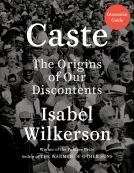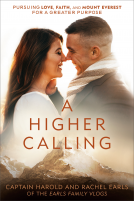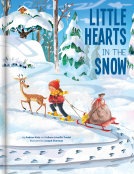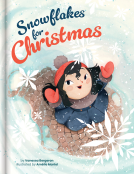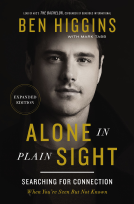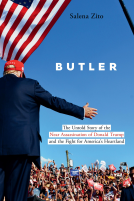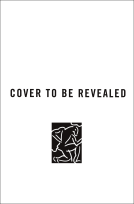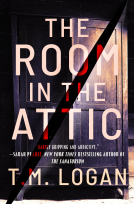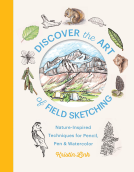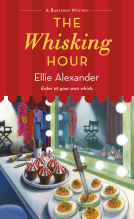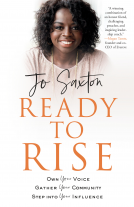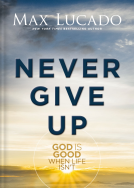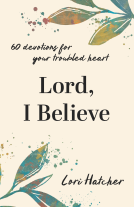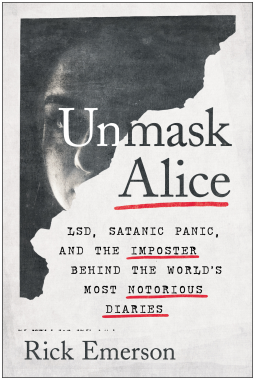
Unmask Alice
LSD, Satanic Panic, and the Imposter Behind the World's Most Notorious Diaries
by Rick Emerson
This title was previously available on NetGalley and is now archived.
Send NetGalley books directly to your Kindle or Kindle app
1
To read on a Kindle or Kindle app, please add kindle@netgalley.com as an approved email address to receive files in your Amazon account. Click here for step-by-step instructions.
2
Also find your Kindle email address within your Amazon account, and enter it here.
Pub Date Jul 05 2022 | Archive Date Jul 11 2022
Talking about this book? Use #UnmaskAlice #NetGalley. More hashtag tips!
Description
"An absorbing and unnerving read . . . this book demands to be finished in one sitting." —Booklist
Two teens. Two diaries. Two social panics. One incredible fraud.
In 1971, Go Ask Alice reinvented the young adult genre with a blistering portrayal of sex, psychosis, and teenage self-destruction. The supposed diary of a middle-class addict, Go Ask Alice terrified adults and cemented LSD's fearsome reputation, fueling support for the War on Drugs. Five million copies later, Go Ask Alice remains a divisive bestseller, outraging censors and earning new fans, all of them drawn by the book's mythic premise: A Real Diary, by Anonymous.
But Alice was only the beginning.
In 1979, another diary rattled the culture, setting the stage for a national meltdown. The posthumous memoir of an alleged teenage Satanist, Jay's Journal merged with a frightening new crisis—adolescent suicide—to create a literal witch hunt, shattering countless lives and poisoning whole communities.
In reality, Go Ask Alice and Jay's Journal came from the same dark place: Beatrice Sparks, a serial con artist who betrayed a grieving family, stole a dead boy's memory, and lied her way to the National Book Awards.
Unmask Alice: LSD, Satanic Panic, and the Imposter Behind the World's Most Notorious Diaries is a true story of contagious deception. It stretches from Hollywood to Quantico, and passes through a tiny patch of Utah nicknamed "the fraud capital of America." It's the story of a doomed romance and a vengeful celebrity. Of a lazy press and a public mob. Of two suicidal teenagers, and their exploitation by a literary vampire.
Unmask Alice . . . where truth is stranger than nonfiction.
Available Editions
| EDITION | Other Format |
| ISBN | 9781637740422 |
| PRICE | $26.95 (USD) |
| PAGES | 384 |
Links
Average rating from 229 members
Featured Reviews
 Michelle K, Reviewer
Michelle K, Reviewer
Unmask Alice
LSD, Satanic Panic, and the Imposter Behind the World's Most Notorious Diaries
by Rick Emerson
Pub Date 07 Jun 2022 |
BenBella Books
Biographies & Memoirs | History | True Crime
I am reviewing a copy of Unmask. Alice through BenBella Books and Netgalley:
If you were a teen in the 1970’s, 1980’s or 1990’s you likely read either Go Ask Alice, (First Published in 1971) or Jay’s Journal (First published in 1979). Go Ask Alice reinvented the young adult genre with a blistering portrayal of sex, psychosis, and teenage self-destruction. The supposed diary of a middle-class addict, Go Ask Alice terrified adults and cemented LSD's fearsome reputation, fueling support for the War on Drugs. Five million copies later, Go Ask Alice remains a divisive bestseller, outraging censors and earning new fans, all of them drawn by the book's mythic premise: A Real Diary, by Anonymous.
But Alice was only the beginning.
In 1979, another diary rattled the culture, setting the stage for a national meltdown. The posthumous memoir of an alleged teenage Satanist, Jay's Journal merged with a frightening new crisis adolescent suicide to create a literal witch hunt, shattering countless lives and poisoning whole communities.
But what’s the truth behind the journals. It boils down to this both journals came from the same dark place a serial con artist who betrayed a grieving family, stole a dead boy's memory, and lied her way to the National Book Awards.
Basically the story behind the story is just as bad if not worse than the plot of the story, betrayal and deception in the face of great loss.
I give Unmask Alice five out of five stars!
Happy Reading!
 Hilary M, Educator
Hilary M, Educator
Unmask Alice was an absolutely fascinating deep dive into the life and career of Beatrice Sparks, the author behind a number of supposedly "true" diaries of teenagers. Although I was aware of the fakery behind "Go Ask Alice," I had no idea of the level of con artistry behind both that and Sparks's other works. Emerson does a great job explaining the context surrounding Sparks's books. Highly recommended for anyone interested in history or the publishing agency--or anyone who remembers reading Go Ask Alice!
 Reviewer 952273
Reviewer 952273
When I say "This is the book I've been waiting for," I truly mean it.
I've read "Go Ask Alice" multiple times over the years and have always found it enjoyable, though even after my first reading I always felt something was off. It's a great read and really gets the reader feeling for the unnamed narrator, but just a quick search online can will bring up a few vague answers about it's authenticity and the authenticity of other books "edited" by Beatrice Sparks. "Jay's Journal," was a first time read just to get myself prepared for "Unmask Alice" and the fact that the reader is to believe "Jay's" story to be truth blew my mind.
"Unmask Alice: LSD, Satanic Panic, and the Imposter Behind the World's Most Notorious Diaries" went above and beyond my expectations, gave me things to think about regarding America's history with drugs and publishing ethics, and had me experiencing a range of emotions throughout. I found myself in shock over the way Beatrice Sparks could so easily con just about anyone she came in contact with, betrays people who put their trust in her to do good, and at the same time impressed me with what she accomplished in publishing history.
Emerson's thorough research is evident from the start and the wealth of information about everything presented in each short chapter made it an easy read, while leading me down rabbit holes wanting to read more on subjects and people discussed. If you've ever read "Go Ask Alice," "Jay's Journal," or any other "anonymous diaries" in connection with Beatrice Sparks you MUST read this book!
Thank you to NetGalley and BenBella Books for the DRC.
 Melissa K, Reviewer
Melissa K, Reviewer
“It was overwhelming. You couldn’t begin to process a thousand bombings or a thousand angry prisoners, or--God help you--seven thousand pages showing that the war was a pointless death trip.
But the story of one sad girl? That could break the hardest heart.”
“Unmask Alice” grabbed me from the very beginning, sent me down several rabbit holes, and led me to ask many people what they remembered about “Go Ask Alice.” For someone who was born nearly thirty years after the book was published, I remembered it still being recommended in my early teens and probably read it around its fortieth anniversary. (Hopefully, I took it with a grain of salt but the issues presented were far from where my life would take me so who knows.)
Emerson tells a chronological story of how the actual author, not just editor, Beatrice Sparks, of “Go Ask Alice” and “Jay’s Journal”, took advantage of the panicked parents of the 1970s and 1980s to sell outrageous tales of youth gone wrong. Emerson is able to connect each event to the next in a way that doesn’t give too much credit to Sparks’ books while still using her books to explain how society saw them as a nice way to justify their fears of rampant youth drug use, satanism, and other bombastic behaviors of the era. Other authors may have ventured into the correlation-as-causation territory but by presenting it chronologically and with a variety of news stories, you can see how Sparks’ books were very much a catalyst for some of the feelings of the era.
Since a lot of my history knowledge ends before the 1970s and 80s, “Unmask Alice” also provided a detailed recap of what was going on and why sentiments were the way they were during those decades. I appreciated that Emerson didn’t try to over-explain things but gave just enough detail for someone like me who didn’t know or forgot what particular historical events were going on. This is one of the things that led to a lot of searching and adding things to my reading list.
Readers who are familiar with true crime podcasts that have explored these decades might want to gloss over some of the more historical details but they’re brief and still might be of interest.
Emerson tells a chronological story of how the actual author, not just editor, Beatrice Sparks, of “Go Ask Alice” and “Jay’s Journal”, took advantage of the panicked parents of the 1970s and 1980s to sell outrageous tales of youth gone wrong. Emerson is able to connect each event to the next in a way that doesn’t give too much credit to Sparks’ books while still using her books to explain how society saw them as a nice way to justify their fears of rampant youth drug use, satanism, and other bombastic behaviors of the era. Other authors may have ventured into the correlation-as-causation territory but by presenting it chronologically and with a variety of news stories, you can see how Sparks’ books were very much a catalyst for some of the feelings of the era.
Thank you to NetGalley and BenBella Books for this advanced copy of a five-star book! I can’t wait to recommend it!
Everyone of a certain generation is more than likely familiar with the book "Go Ask Alice". My thought process began and ended with it being required reading for school. Unmask Alice absolutely blew me out of the water with it's in depth look at the stories behind the author of Alice. Astonishing doesn't even begin to cover it. Beatrice Sparks, frankly, was a horrendous human for her willingness to take such severe advantage of grieving families, and to continue to portray herself in such a manner as an expert in anything is ludicrous. In the final authors note, Emerson stated this book took him six years to write. I say that's six years well spent, because this book is utterly enlightening, and will be recommended to all of my collogues.
I vaguely remember reading Go Ask Alice back in the 70’s, so that drew my interest to this book. I’m just gobsmacked at the real story behind Alice and how it really came into being. I think the person behind it was angry at being left off the book as editor, as they claimed to be. I believe that the way they used the next diary was a form of revenge, but on the wrong people. It was just so twisted it broke my heart. Such a revelation this read was. Good reading of a bizarre story, well researched book. I received an advance review copy for free, and I am leaving this review voluntarily.
 Kelly O, Reviewer
Kelly O, Reviewer
UnMask Alice is a fascinating, infuriating examination of how Beatrice Sparks managed to con publishers and media who should have known better into believing she was a licensed child psychologist—or was it psychiatrist?—and the editor of teenage diaries ‘Go Ask Alice’ and ‘Jay’s Journal’. Her exploitation of the real ‘Jay’ is especially deplorable.
But the book is more than just another story of a con artist. It delves into the social, cultural, and political events at the time of the diaries’ original publication that fueled their popularity. Shockingly, these books by a woman who was far more talented at being a con artist than a writer fueled the flames of the War on Drugs and the Satanic Panic.
Hemingway said that a good writer has to have a good B.S. detector. Rick Emerson certainly has a fully functioning B.S. detector, and he’s not afraid to say when the alarm is sounding. Hemingway would approve.
Thank you NetGalley and BenBella books for the ARC.
An absolutely fantastic non-fiction expose that reads like a thriller... or the very best documentary series you've ever seen. Unmask Alice picks apart the deception and motivations behind several key texts of the 70s War on Drugs and the 80s Satanic Panic, to reveal no grand conspiracy of Satanists or predatory drug-pushers, but a deeply sad small-town tapestry of misfits, troubled teens and outcasts searching for belonging. I absolutely inhaled this book.
Unmask Alice was an absolutely fascinating read! I was unfamiliar with the life and career of Beatrice Sparks who was the adult writer behind a number of fake diaries of teens. It's been years since I read "Go Ask Alice," and I had no idea that it was a sham, let alone that the writer had put more fake accounts out there! I recommend this read to anyone interested in the memoir, biography, or YA reads!
 Amy B, Librarian
Amy B, Librarian
Rick Emerson takes a deep dive into the life and works of Beatrice Sparks, the true author of a bestselling string of "anonymous" young adult novels in diary form, most notably <em>Go Ask Alice</em>. Sparks was a compulsive liar who claimed to be a teen counselor with a PhD from either Brigham Young University or UCLA (her alleged alma mater varied), although in reality she only spent a few months in college. It is remarkable that she got away with as much as she did, considering that she had a hard time keeping her own stories straight.
Apart from <em>Alice</em>, Emerson devotes much space in his book to the story of Alden Barrett, a troubled young man whose diary (which Sparks embellished with scenes of witchcraft and demonic possession) became the basis of Spark's second young-adult novel, <em>Jay's Journal</em>. Sparks dealt callously and dishonorably with Alden's grieving family.
Emerson also explores related subjects such the conservative Utah-Mormon milieu that gave rise to Beatrice Sparks; television personality Art Linkletter's role in bringing about President Richard Nixon's "War on Drugs"; and the origins of the "Satanic Panic" of the 1980s.
All in all, Emerson has written a well-researched, compulsively readable debunking of some of the most enduring myths of young adult literature.
I received an electronic pre-publication copy of this book via NetGalley in exchange for an honest review. I was not compensated in any way.
 Teresa G, Educator
Teresa G, Educator
Thank you Netgalley for this ARC of Unmask Alice by Rick Emerson.
INJECT THIS STORY DIRECTLY IN MY VEINS, I CANNOT GET ENOUGH.
I was honestly sad when this was over, and for a nonfiction book, that's saying something.
Did I read Go Ask Alice by Anonymous when I was younger? Um, am I a child of the 80's? Hell yeah I read it. And it was filled with all of the teen angst, drugs, depression etc that I could have asked for. It also did what the book was intended to do, scared me right off of drugs. I believe I've read it twice, it's a tough one to forget. Who is this mysterious young girl, and what really happened to her after the journal ends? And why was it labeled anonymous?
This takes not just a deep dive into that story, but a deep dive from all different angles. You're going to get into singular people in the 40's and 50's, satanic panic, The Nixon administration, the geneology of LSD, as well as how a small Mormon town in the 70's contributed to this book that has sold more copies than Sylvia Plath's The Bell Jar. It's written SO well, it's entertaining, informative and fascinating. I could not get enough, I loved every moment of this book.
As a 90s kid, I remember being fascinated by the books Go Ask Alice and Jay's Journal - and then being confused about their origins. For all lit-nerdy 90s kids, this is a must-read exploration of the woman behind these books and their role in propagating the disastrous war on drugs and the satanic panic. It's meticulously researched, and engagingly written.
 Janalyn P, Reviewer
Janalyn P, Reviewer
In a world where baby boomers were becoming parents and their biggest fear was their kids doing what they did in the sex drugs and rock ‘n’ roll era that they created. They were a prime target for these two diaries by anonymous. It’s a butterfly wing can set off a slight wave then these books settle of a hurricane and having lived through Satanic panic it really makes me angry. So many innocent people were touched negatively so this woman could get some sort of recognition that she seems to have needed and she didn’t care who suffered. although 50 years too late, I am so happy Rick Emerson decided to write this book and let the world know what a fraud this “author“ is. It makes me very sad and almost sick to think about the people disaffected and change their lives for the horrible. This really is a must read especially for those who are baby boomers or children of baby boomers and that’s a book I highly recommend. I was given this book by Nick Galli and I am leaving this review voluntarily. Please forgive any grammatical punctuation errors as I am blind and dictate my review but all opinions are definitely my own.
 Pamela M, Librarian
Pamela M, Librarian
A fascinating look at the Go Ask Alice phenomenon, 70s “satanic panic,” the Mormon church/society, and the incredible hubris of Beatrice Sparks.
 Kyle W, Bookseller
Kyle W, Bookseller
A phenomenal mix of true crime, history and literature studies Unmask Alice is a top notch study of how trauma, paranoia and stories can affect the world. Rick Emerson delivers a biting and sometimes funny summation of the impact of Go See Alice and the con men and women who used these books to affect young people and the USA about topics ranging from Drugs, Moral Panic (Satanic Panic), The AIDS Crisis. As a history major and future teacher, I definitely want to use this book when speaking about paranoia and the lengths people go to push a message. I also loved the discussions surrounding Mental Health and the Counterculture of the US because they are both important discussions that seem to be blocked or ignored. I loved reading this book and hope for another from Mr. Emerson soon!
 Michelle M, Reviewer
Michelle M, Reviewer
I didn't find out that Alice was a hoax until a few years back. To be honest, I'd never thought too hard about whether the diary was real or not. My childhood was full of cautionary tales, most of them definitely not true. Alice was just another one of many stories. I never read Jay's Journal, but I've got vivid memories of the Satanic Panic.
Unmask Alice looks at Beatrice Sparks and her hoaxes through the eyes of 2022 and as frustrated as I got by some of the author's descriptions (at one point he describes the letters to the editor page in the newspaper as "a prehistoric comments section") I couldn't put it down.
 Jennifer S, Reviewer
Jennifer S, Reviewer
Where do I even start with this book? Learning that the series was all fake, and that the "inspiration" behind Jay's Journal was created after conning his parents out of the journal, my mind has been blown. I thought this book was going to be a relatively easy ride but it took me over 12 hours to read it, and I read ridiculously fast. I absolutely love how much information was put into this book and used as a platform for Sparks' lies to stand on. I wasn't expecting to enjoy the political side of the book but I surprised myself and learned a lot about Nixon and his time in office. I'm Pagan, so reading the crazy stories about the 'Satanic Panic' and Anton and all of the stories that popped up were right up my alley. I love learning new thing and building up my brain. There's still satanic panic these days, though it's much more quiet and less people are attacked. What blows my mind is that Alice's book was just a story created out of thin air and wisps of smoke. Jay's had a few truthful journal entries but everything was blown out of proportion and embellished and 95% made up. I feel so bad for the Barretts and the nightmares they had to go through. They had already gone through so much, they didn't need even more on their plate. I was pretty disappointed that, while the brother wrote his own book, none of his family took legal routes and called her out on her degrees, jobs, lies about everything. It's so hard to see them get knocked down and never really get a chance to get back up.
I'm really glad I stuck with the book and kept on going because THESE are the truths that need to be heard. I appreciate you, Rick, for all of your hard work and endless headaches and frustrations while compiling everything for this book. You deserve way more than 5 stars.
I, like every other child who grew up in the 1970's, have read (or wanted to read) "Go Ask Alice". I was fortunate that I did not have to sneak around to read controversial books. In "Unmask Alice" we are hearing the other side of the story,..the truthful side. It is a wild tale! The author takes you to places and people that will surprise you. I spoke so highly of this book to my store manager, that she is planning on setting up a display with both titles together. Eye-opening read!
Before I picked up Unmask Alice, as someone who was born into a post 9/11 world, I had never even heard of Go Ask Alice, let alone Beatrice Sparks. Despite this, I was able to thoroughly enjoy reading it.
It’s not often that I pick up a book that I’d want everyone to read.
Unmask Alice was a tale that firmly sunk its hooks into me within the first chapter, and kept me hooked throughout the rest of the book.
Every part of the story was clearly incredibly well-researched, and fully fleshed out.
The book did a great job of providing the context behind each person’s motivations, and what impact their actions had on human history.
It would be an absolute tragedy to miss out on reading this book, and I can hardly wait to buy it when it releases this summer.
First off, thank you to BenBella Books and NetGalley for allowing me to read and review this digital ARC of Unmask Alice.
This book was an absolute eye opener! I’ve read Go Ask Alice a LONG time ago. Rick’s immense and thoughtful research, interviews and conversations bring to light the truth behind these two books. For years there’s been debates on the authenticity of Go Ask Alice and this book finally gives us answers to our questions. Extremely well written, be sure to check trigger warnings.
Wow wow wow this book had me all in my feeling. I had no idea about a lot of this stuff. It’ was an awesome but also livd read.
Informative, Eye Opening, and Fascinating.
Unmask Alice by Rick Emerson is the non-fictional exposure of the truth behind the diaries written by Beatrice Sparks. Go Ask Alice by anonymous aka Beatrice Sparks is a YA lit legend and was even made into a film in the 70s. I remember reading this in high school and being blown away by the story I thought to be true. Unmask Alice does exactly what the title states, and this will leave fans of Go Ask Alice devastated and disgusted. Many fascinating topics of the 70-80s are discussed such as yellow journalism, the war on drugs, the satanic panic, Mormon culture, the troubled teen industry, and media manipulation. Although being very informative, this book was never boring. Every piece of information had a part in this investigation. Reading this has furthered my resolve to fact check and to not believe everything I read. This book took years of research and is written eloquently without bias. I strongly recommend this to readers of Go Ask Alice and the anonymous diaries. Go Ask Alice and Jay's Journal are fraudulent and massive contributors to yellow journalism and the satanic panic. I plead with you to read this for the families and reputations ruined by Beatrice Sparks.
 Erin B, Librarian
Erin B, Librarian
This book is amazing. One of the best books I've ever read. It traces the beginning of the Satanic Panic back to the original seed, sparing nothing. It was genuinely upsetting, especially when we learned that there were no repercussions for Beatrice Sparks's lies.
 Hannah S, Reviewer
Hannah S, Reviewer
Fascinating nonfiction novel detailing the background of the book Go Ask Alice, I’d never read it but I knew of it and the general guess that it was fake, I went through this book so fast because it was informative, funny and handled the story with the respect it needed
 Librarian 20025
Librarian 20025
As one of the multitude of people who was a teenager when Go Ask Alice was at its most popular, I was eager to read about the truth of this book's origins. While I had heard rumors that Go Ask Alice wasn't a genuine teenager's dairy, I didn't appreciate the level of deception and greed for glory that was involved. Unmask Alice explains how Go Ask Alice came into being (Who would have thought Art Linkletter played a role?) in addition to the motivations of the author and those who promoted the story as unvarnished truth. Unmask Alice is an excellent read for anyone interested in US history during the 1970s through the 1990s as the author explains how social fears lead to the creation and unquestioning acceptance of Go Ask Alice, as well as other titles by the author.
 Reviewer 940570
Reviewer 940570
I grew up with my mother talking about Go Ask Alice as a cautionary tale, warning me about the dangers of drugs as though by means of some higher power. It was impossible for her to believe in that book any more, and I never read it because her constant regurgitation of its contents made it unnecessary.
Reading this book was not only enlightening for someone who just willed Go Ask Alice and all it’s contents out of their minds (or I guess also has never read it, but it was funny, engaging, and I couldn’t help but consume it.
This was a rabbit hole I thoroughly enjoyed, and I will be putting Rick Emerson on my autobuy authors list.
Thank you to NetGalley for my eARC.
My wife reads me a few books each year. She chooses the book, there’s no theme.
My wife is one of those gifted individuals capable of just putting a book down, sometimes for weeks, sometimes forever. I don’t have that skill. From the time I crack a cover, the book dominates my life until I’ve reached the end.
We read at different paces.
Our reading started out as a kind of therapy. She would read for half an hour and that would be it. I’ll admit I finished The Accidental Tourist behind her back, but other than that, I have learned to be patient. Still, I need to know how a story ends, even if it’s poorly told. Recently, I found out that she did as well, but in a different way.
We were reading The Terror, Dan Simmons historical fiction about a doomed polar expedition. Once we were about halfway through, she started annotating it for me as well. So compelled was she by the story that she did outside research to see what was true, what was plausible, and what was pure fiction (besides the monster).
It never had occurred to me that people could fact-check along with the writer as they went. Having written nonfiction, and undergone the legal cross-examination my publisher arranged, that people read with their phones (or computers) nearby, trying to get more out of a story than was being presented somehow had eluded me.
People aren’t looking for spoilers so much as for improved context, a sense of what “really” happened.
My take on it always has been: trust the author. You paid for a story and you’re getting it. If you find it unsatisfying, don’t buy any more. Information is everywhere.
I don’t open books for information, I open them for the stories, the journey taken by someone who spent an ungodly amount of time with all of the information. I want to know what it means, not what it is.
So when Rick Emerson opened his introduction to Unmask Alice with an admonition against Googling while reading, I was on board immediately.
He knew that most of the facts about his work were out there and that having access to them could ruin the effect. This wasn’t a lack of confidence in his interpretation, it was a friendly warning: Don’t diminish your experience with flat facts.
So much of true crime is in the presentation. We don’t read true crime to find out what happened. We read it in hope that the author will make good on their promise to make sense of it, to tell us what it might mean.
In this case, Emerson goes beyond even the story’s broadest implications to question whether there is and should be a difference between fiction and creative nonfiction.
Why Nonfiction
Although he would never argue that Go Ask Alice is in any way a work of merit, over the course of his book Emerson illuminates the effect one mediocre book had and still is having on our culture.
I haven’t read Go Ask Alice, but as Emerson says early on, even if you haven’t read it, you know the highlights: An anonymous girl gets involved in drugs and documents her tailspin in graphic, sometimes salacious, detail. Some people say it is a fake.
It waxes and wanes in popularity, but for the latter part of the last century, it was a reliable seller in the young adult market.
My own daughter read it in this century as part of a school assignment. Whether or not you’re familiar with any part of the story, its editor, and the occasional scandals associated with Go Ask Alice, I can’t recommend following the author’s suggestion enough.
Unmask Alice is less an account than it is a story of investigation and discovery. To approach it as anything else will devalue the experience, and that would be too bad because it is a hell of a story.
This is the kind of book that would be undermined by a synopsis and even a peak around the corner could take some of the fun out of it. Emerson clips along, short paragraphs in short sections that make up longer chapters and even longer parts.
About a third of the way through I worried that the last half of the book would be padded.
It’s the downfall of many nonfiction books that the second third can feel long as the author works to justify the larger implications of the premise, and there is a moment in Unmask Alice where I’ll admit to worrying I’d hit that kind of plateau.
Then the bottom fell out, and once the descent began I was along for the ride, even as I was flabbergasted at its implications.
There was a point where I was certain that this was closer to an anthology, a demonstration of how disparate events told us something about Nixon’s war on drugs and the rise and fall of several other cultural manias that plagued us then. That plague us now.
When tied together, the combination of outrage and mild admiration at the audacity of unchallenged authority does the heavy lifting. It is a gut punch that you can feel coming but can’t prevent.
Unmask Alice reveals the truth behind the fraudulent diary and challenges our notions of what nonfiction is supposed to do.
Writing True Crime
In every true story we tell, there’s this temptation to elaborate beyond our bounds, especially when we’re the ones who have all or most of the facts. Whether a story is true or not, in the end, only matters to the writer.
No amount of shade thrown at Truman Capote is going to undo the effect In Cold Blood had on American life and literature.
This urge to tell the big-T Truth even if it isn’t supported by the facts hovers over the left shoulder of even the most diligent investigator. Overcoming it is difficult but critical.
Still, we want to believe in the investigatory process. We want to know that the author is not inventing the story from whole cloth because that is what we go to nonfiction for.
We want someone to give order to chaos, to provide an answer that is little-t true even if it is unsatisfactory.
Regular readers of true crime are used to the difference between the story that is initially reported and the story that eventually shakes out.
Emerson points out how time and again, our fascination with If It Bleeds It Leads lets everyone off the hook except the victims. To watch honest objectors steamrolled because their true explanations aren’t sexy enough only enhances the frustration.
Unmasking Alice challenges us to take the question of research and authority seriously, to ask ourselves what we want from our nonfiction and whether it really matters.
We want to say that in real life, it doesn’t matter if the story is true as long as the lesson is real. Emerson goes a long way toward undermining that common-sense thought.
What we read affects our actions. What we expect affects our decisions about what to read. The larger point is that our public conversation has to be about more than desired outcomes. That approach has not only eroded trust but called the need for truth-telling into question.
The Go Ask Alice phenomenon, as revealed by Emerson, is that we want simple explanations for complex problems. Our culture doesn’t want problems solved so much as it wants someone to blame for them.
This is a fact well known to the world’s most effective bad actors.
Nuts and Bolts
Emerson’s voice is clear, honest, and personal. He takes us along at a good pace. The few qualms some readers might have is that he asks for a lot of trust he hasn’t earned yet in the first half of the book.
Knocking on 350 pages, the work leaves the reader to take themselves over the precipice. I have to reiterate that when the book slows and the story seems to flag, keep reading. There are more and better twists ahead.
My only other quibble is more a formatting peeve than a serious problem. There are a lot of newspaper passages where summaries would have done just as well.
In the endnotes, Emerson explains that (for excellent reasons) he shied away from over-citing in the text, but a few sections of excerpts may make the book longer than it needs to be without adding proportionate context.
For my part, I read it in a sitting, compelled by the promises made and kept. I uttered “Oh, no” aloud at the final twist which was satisfying enough to justify trust Emerson asked for at the start.
Growing up, I always told everyone I knew that Go Ask Alice was my favorite book. Like most pre-pubescent girls in the 90s, I flew through it about four or five times in a year. Really believing in the depths of my 12 year old soul that Alice was at one time a real, breathing human being who had gone through all of these horrible things, only to tragically fall victim to her addiction and lose her life.
I held onto this story growing up, one of the main reasons I never touched hard drugs and passed it on to my baby sister, telling her it was a true story in order to help prevent her from making the same decisions that I had made, all because of ‘Alice’.
What I didn’t know at the time was how deceitful “Doctor” Beatrice Sparks was. I wasn’t around in the 70s, I have never heard of Jay’s Journal until reading this book and all of the other “journals” or “case studies” that were published as non-fictions. This book opened my eyes to a lot more than just the lies, it covers the satanic panic of the 80s and early 90s, the creation of LSD and a slew of other things.
I loved this book. It was extremely insightful and I feel more educated on things I thought I knew about than I could have ever imagined. This was a wild ride of uncovering the truth behind a national best seller, and the other untruths this woman released into the world. I’m very happy and thankful for the ARC from NetGalley and the publishers, I highly recommend this one.
Readers who liked this book also liked:
Harold Earls, IV; Rachel Earls
Biographies & Memoirs, Parenting, Families, Relationships
Andrew Katz; Juliana Léveillé-Trudel;
Children's Fiction
Vanessa Bergeron; ; Vanessa Bergeron
Children's Fiction
Kristin Link
Arts & Photography, Crafts & Hobbies, Outdoors & Nature
